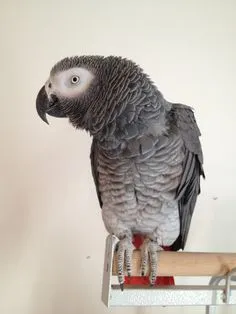Bringing home a hand-reared parrot can be an exciting step for any pet enthusiast, but timing is everything when it comes to the best age to buy a hand reared parrot. Many new owners wonder where to source their bird and at what stage it’s ready for a new home. Choosing the right age ensures a smooth transition, minimizing stress and fostering a strong bond from day one.
Purchasing directly from a reputable breeder is ideal, as they specialize in hand-rearing techniques that produce friendly, well-socialized birds. In regions like the UK, many pet stores also breed their own parrots, offering healthy options that thrive as pets. However, the key factor isn’t just the source—it’s confirming the bird has fully completed its hand-rearing process.
Why Age Matters in Hand-Reared Parrots
Hand-rearing involves feeding young parrots a specialized formula to mimic parental care, building trust in humans early on. If you buy too early, such as at 8-10 weeks when feeding is ongoing, the bird may struggle with weaning and adapting to solid foods in your home. This can lead to health issues like poor nutrition absorption or behavioral setbacks.
Veterinarians from organizations like the Association of Avian Veterinarians emphasize that parrots weaned prematurely often face higher stress levels during relocation. A fully weaned bird is independent enough to eat on its own, reducing the risk of complications. For instance, species like pionus birds require precise weaning to develop strong immune systems.
 f51b9e7c3526f7fb1c4936a652f7fc0a
f51b9e7c3526f7fb1c4936a652f7fc0a
Experienced breeders note that birds moved during this optimal window retain their tameness while quickly adjusting to new environments. Always inspect the bird’s feeding routine and consult the breeder about its diet history to verify readiness.
The Ideal Age: 12-15 Weeks Old
The best age to buy a hand reared parrot is between 12 and 15 weeks. At this stage, the bird is fully weaned, confident, and eager for change. They handle moves to new premises effortlessly, often showing curiosity rather than fear.
Studies from avian experts indicate that parrots in this age range bond faster with owners, as their socialization window is still open. Up to 20 weeks can work, but caution is advised—longer stays at the breeder’s can make them too attached, complicating relocation. Signs of readiness include independent eating, playful behavior, and comfort with handling.
For smaller parrots like African lovebirds, this timeline aligns perfectly, promoting lifelong companionship. Real-world experience from breeders shows that 12-week-olds settle within days, chirping happily in their new cages.
Considerations for Older or Younger Birds
While 12-15 weeks is prime, fully tame birds up to 1-2 years can transition smoothly if properly socialized. However, prioritize younger ones if possible to shape behaviors early. Avoid anything under 12 weeks unless you’re equipped for continued hand-feeding, which demands expertise.
Key checklist before buying:
- Fully tame: Steps up on finger without hesitation.
- Weaned: Eats pellets, fruits, and veggies independently.
- Health check: Clear eyes, active demeanor, no feather plucking.
Relocation stress is minimal in ideal ages, but provide a quiet space, familiar foods, and gradual introductions to prevent issues like screaming or feather picking.
Where to Buy and Expert Tips
Opt for breeders with clean facilities and references—visit multiple times to observe the birds. Pet shops breeding in-house are viable alternatives. Resources like the World Parrot Trust recommend verifying DNA sexing and vaccination status for long-term health.
In my experience caring for various parrot species, starting with a 13-week-old conure led to a stress-free integration, unlike an older, set-in-its-ways bird. Always quarantine new arrivals and schedule a vet visit within the first week.
Final Thoughts on Buying Your Parrot
Selecting the best age to buy a hand reared parrot—around 12-15 weeks—sets the foundation for a joyful pet-parent relationship. Prioritize fully weaned, tame birds from trusted sources to avoid common pitfalls. With patience and proper setup, your parrot will flourish.
Consult an avian veterinarian for personalized advice, and explore more on parrot care through our guides. Ready to welcome a feathered friend? Share your questions in the comments!
References
- Association of Avian Veterinarians: Guidelines on Hand-Rearing Parrots.
- World Parrot Trust: Best Practices for Pet Parrot Acquisition.
- Rob Harvey Feeds: Expert Insights on Parrot Weaning (original source).
